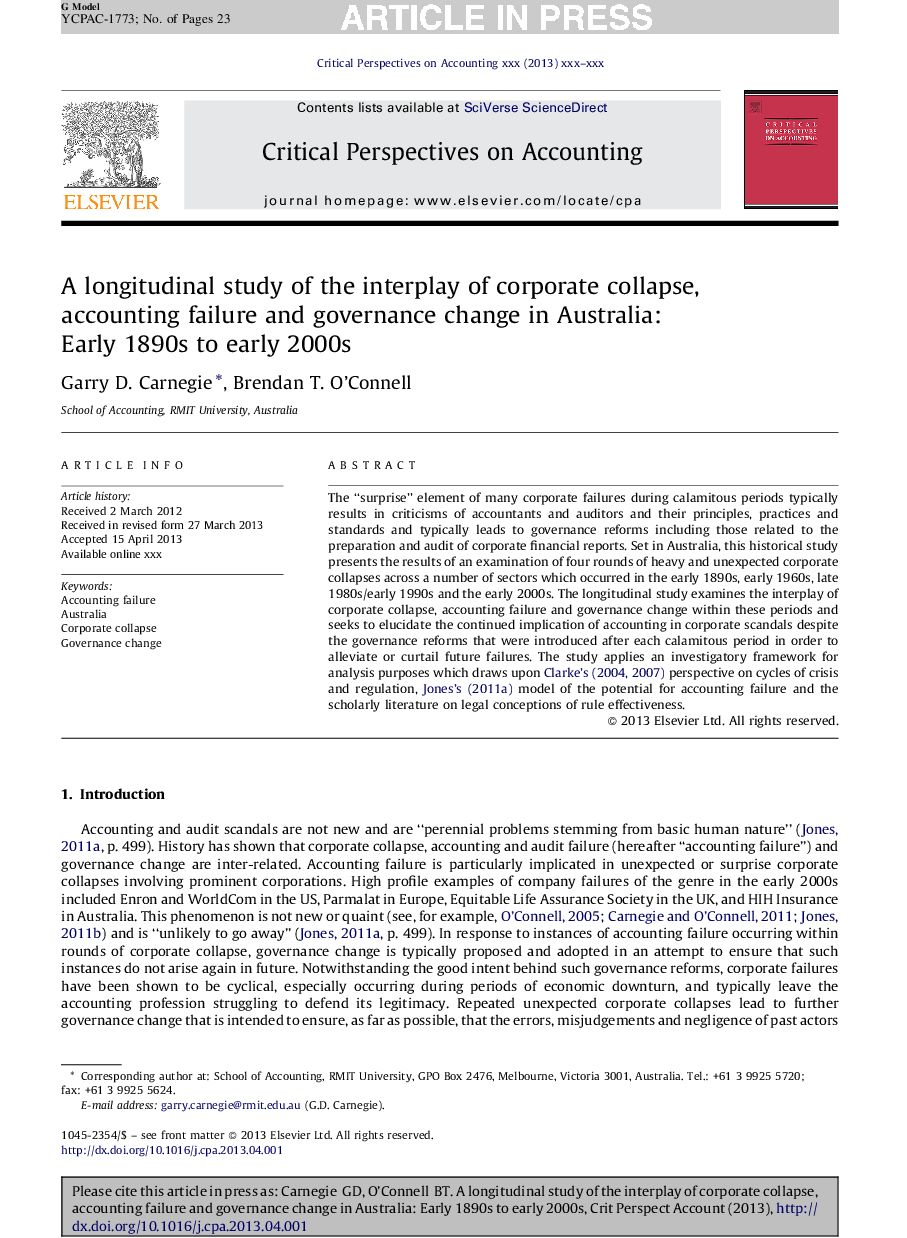| Article ID | Journal | Published Year | Pages | File Type |
|---|---|---|---|---|
| 10488296 | Critical Perspectives on Accounting | 2014 | 23 Pages |
Abstract
The “surprise” element of many corporate failures during calamitous periods typically results in criticisms of accountants and auditors and their principles, practices and standards and typically leads to governance reforms including those related to the preparation and audit of corporate financial reports. Set in Australia, this historical study presents the results of an examination of four rounds of heavy and unexpected corporate collapses across a number of sectors which occurred in the early 1890s, early 1960s, late 1980s/early 1990s and the early 2000s. The longitudinal study examines the interplay of corporate collapse, accounting failure and governance change within these periods and seeks to elucidate the continued implication of accounting in corporate scandals despite the governance reforms that were introduced after each calamitous period in order to alleviate or curtail future failures. The study applies an investigatory framework for analysis purposes which draws upon Clarke, 2004, Clarke, 2007 perspective on cycles of crisis and regulation, Jones's (2011a) model of the potential for accounting failure and the scholarly literature on legal conceptions of rule effectiveness.
Related Topics
Social Sciences and Humanities
Business, Management and Accounting
Accounting
Authors
Garry D. Carnegie, Brendan T. O'Connell,
